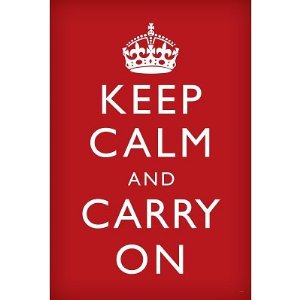What to do if you’re a Photographer…and you run into Security
By now, most people have noticed that there seems to be some kind of animosity between security personnel and photographers. By “photographer”, we mean anyone taking pictures or recording film, just to be clear about that.
YouTube and Flickr are filled with videos of photographers being “accosted” and confronted by security or law enforcement officers (LEOs) who apparently think that banning photography or filming is an important part of keeping property or areas or people safe. It’s a common thing, apparently.
This attitude has been growing for years, and has been spurred on by both terror attacks and the legislation that has followed in the wake of such horrible events, and which has only lately been eased up to near-sensible levels. That doesn’t mean that the problems cease to exist, however. Nearly every day, there are new reports of photographers being hassled by those who should be upholding both law and/or security, be it public servants like police, customs or transit authorities, or private security officers, working to keep private property or persons safe.
It’s important to remember in all this, that most LEOs and security officers try to do a good job, and the vast majority of them succeed in this. As usual, the public gets to see the bad side of people and professions, while the good sides go unheeded, or blend into an undistinguishable mash of memories that are set aside. Still, we’d like to emphasize the key points in the photographer vs security debate again.
Security’s point of view
In any issue, it’s important to see both sides (even Phil Collins knows that), and we’ll try to see it from security’s (misguided) side first.
The assumption is this; Terrorists will spend time “staking out” a place of interest over time, mapping security measures and physical obstacles, as well as gather intelligence about human targets and/or security personnel at the site they’re interested in. They will do this using a variety of techniques, including cameras, and so anyone who is (seemingly) taking pictures of those things is a threat, and it needs to be stopped.
In itself, this isn’t all bad. Yes, terrorists or other “bad guys” will gather information on their targets, unless they’re just loony-tunes suicide bombers who’ll run into any old crowd. There are many ways to collect information about targets, one of which is to take pictures. But if this is so, then how is this thinking misguided? Well, we’ll look at a few things.
- The ratio of terrorist to plain old photographer must be staggering. There’s no way around that. There’s no way to come up with a real figure here, but it must be several million “normal” photographers to every one that has even the slightest bit of mischief planned as a reason for him/her taking pictures.
- There are already pictures out there of whatever it is you’re trying to protect. Have you heard of Flickr? Or YouTube? Or 500px? More are not only unavoidable, they’re also harmless.
- Targeting individual, random photographers will not only take up time and efforts better used elsewhere, it will also possibly present a situation where civil rights are stepped on, and will have consequences for the individual officer and the organization.
- Targeting individual, random photographers may divulge more of your security efforts than they will help conceal.
- In the (extremely) unlikely event that the photographer is gather intel for a terrorist attack (or a heist), what will stopping one day’s picture-taking do to stop the plans? Nothing at all.


1 thought on "What to do if you’re a Photographer…and you run into Security"